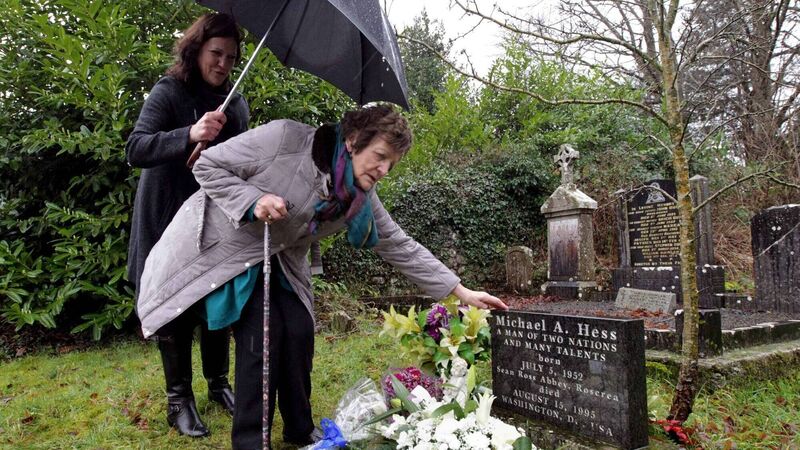Government must act ... or the epitaph ‘Deny Till They Die’ will be written on the tombstone of Irish justice

Philomena Lee and her daughter Jane Libberton at the graveside at Seán Ross Abbey, Roscrea, at a private memorial for her son Anthony Lee (Michael Hess) who was lost to her by forced adoption in the mid 1950s.
The State has acknowledged in the High Court that the rights of survivors were breached when they were not given a draft of the Mother and Baby Homes Commission's final report prior to its publication.
In a victory for Philomena Lee and Mary Harney, who were chosen as test cases to address a core claim in other similar actions, the State acknowledged that the women’s rights were breached when they were not given a draft of the final report prior to its publication.










